#nancy isenberg
Text
“History is not a bedtime story. It is a comprehensive engagement with often obscure documents and books no longer read—books shelved in old archives, and fragile pamphlets contemporaneous with the subject under study—all of which reflect a world view not ours.”
— Fallen Founder: The Life of Aaron Burr, by Nancy Isenberg · 2007
#amrev#american history#american revolution#nancy isenberg#history#cicero's history lessons#quotes#aaron burr
329 notes
·
View notes
Text

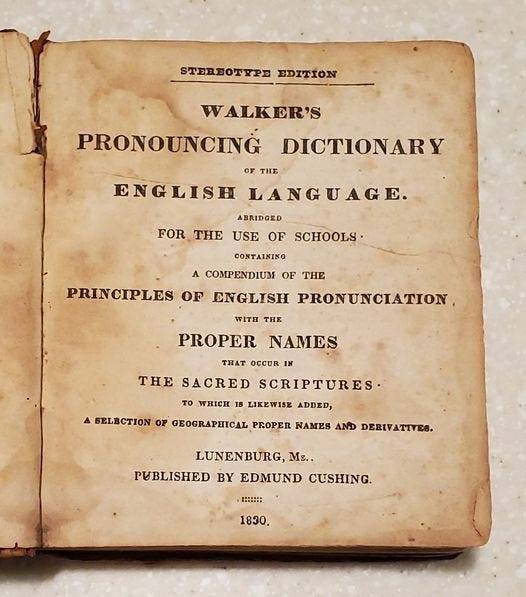
In 1830 a newspaper in North Carolina, the Newbern Sentinel, ran an article about an unpublished dictionary, titled The Cracker Dictionary. The work appears to have remained unpublished (perhaps the title had something to do with this), but in reporting on the words contained in the book’s nascent form the article provides early written evidence of a number of 19th century Americanisms. Among these is absquatulate, which is spelled with an initial O, rather than A, and defined as “to mosey, or to abscond.”
In addition to absquatulate, the reader is informed of the meaning of a number of other similar terms, many of which have retained some degree of currency in our language; flustrated (“frustrated and prostrated, greatly agitated”), rip-roarious, (“ripping and tearing”), and fitified (“subject to fits”) have seen enough continued use that we define them in our Unabridged Dictionary. Other words contained in this never-realized dictionary, such as ramsquaddled (“rowed up salt river”) and spontinaceously (“of one’s own accord”) appear to have been lost with the passage of time.
Two of the loafers, we understand, were yesterday taken and committed to prison; the other has absquatulated.
— The Times-Picayune (New Orleans, Louisiana), 13 June 1837

Cracker, sometimes cracka or white cracker, is a racial epithet directed towards white people, used especially with regard to poor rural whites in the Southern United States. Although commonly a pejorative, it is also used in a neutral context, particularly in reference to a native of Florida or Georgia (see Florida cracker and Georgia cracker)
The exact history and etymology of the word is debated.
The term is "probably an agent noun from the word crack. The word crack was later adopted into Gaelic as the word craic meaning a "loud conversation, bragging talk" where this interpretation of the word is still in use in Ireland, Scotland, and Northern England today.
The historical derivative of the word craic and its meaning can be seen as far back as the Elizabethan era (1558–1603) where the term crack could be used to refer to "entertaining conversation" (one may be said to "crack" a joke or to be "cracking wise") The word cracker could be used to describe loud braggarts; An example of this can be seen in William Shakespeare's King John (c. 1595) "What cracker is this same that deafs our ears with this abundance of superfluous breath?"
The word was later documented describing a group of "Celtic immigrants, Scotch-Irish people who came to America running from political circumstances in the old world". This usage is illustrated in a 1766 letter to the Earl of Dartmouth which reads:
I should explain to your Lordship what is meant by Crackers; a name they have got from being great boasters; they are a lawless set of rascalls on the frontiers of Virginia, Maryland, the Carolinas, and Georgia, who often change their places of abode.
The label followed the Scotch-Irish American immigrants, who were often seen by officials as "unruly and ill-mannered" The use of the word is further demonstrated in official documents, where the Governor of Florida said,
'We don't know what to do with these crackers—we tell them to settle this area and they don't; we tell them not to settle this area and they do'
By the early 1800s, those immigrants "started to refer to themselves that way as a badge of honor" as is the case with other events of linguistical reappropriation.
The compound corn-cracker was used of poor white farmers (by 1808), especially from Georgia, but also extended to residents of northern Florida, from the cracked kernels of corn which formed a staple food of this class of people. This possibility is given in the 1911 edition of Encyclopædia Britannica, but the Oxford English Dictionary says a derivation of the 18th-century simplex cracker from the 19th-century compound corn-cracker is doubtful. A "cracker cowboy" with his Florida Cracker Horse and dog by Frederic Remington, 1895
It has been suggested that white slave foremen in the antebellum South were called "crackers" owing to their practice of "cracking the whip" to drive and punish slaves. Whips were also cracked over pack animals, so "cracker" may have referred to whip-cracking more generally. According to An American Glossary (1912):
The whips used by some of these people are called 'crackers', from their having a piece of buckskin at the end. Hence the people who cracked the whips came to be thus named.
Another possibility, which may be a modern folk etymology, supposes that the term derives from "soda cracker", a type of light wheat biscuit which dates in the Southern US to at least the Civil War. The idea has possibly been influenced by "whitebread", a similar term for white people. "Soda cracker" and even "white soda cracker" have become extended versions of "cracker" as an epithet

A 1783 pejorative use of crackers specified men who "descended from convicts that were transported from Great Britain to Virginia at different times, and inherit so much profligacy from their ancestors, that they are the most abandoned set of men on earth".
Benjamin Franklin, in his memoirs (1790), referred to "a race of runnagates and crackers, equally wild and savage as the Indians" who inhabit the "desert[ed] woods and mountains".
In his 1964 speech "The Ballot or the Bullet", Malcolm X used the term "cracker" in reference to white people in a pejorative context. In one passage, he remarked, "It's time for you and me to stop sitting in this country, letting some cracker senators, Northern crackers and Southern crackers, sit there in Washington, D.C., and come to a conclusion in their mind that you and I are supposed to have civil rights. There's no white man going to tell me anything about my rights."
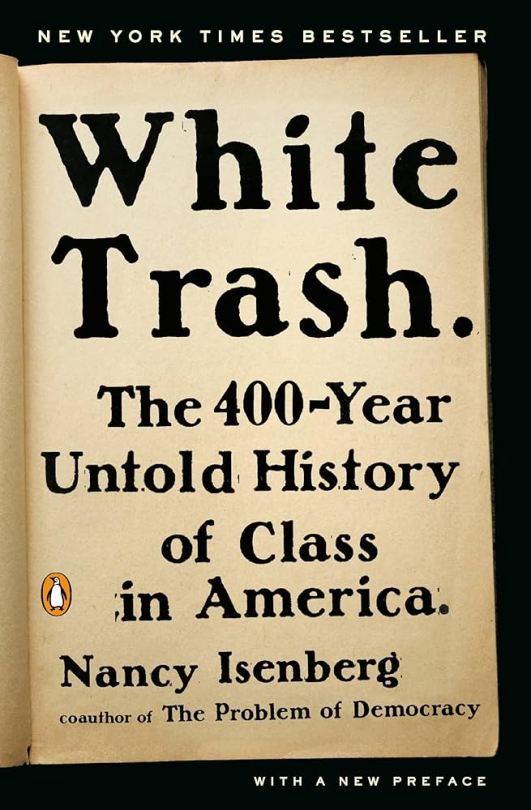
#nancy isenberg#white trash#white trash book#democracy#the problem of democracy#400 years#cracker#kemetic dreams#crackers#banana#pudding#croissant#cereal#chocolate#squatters#squatter#ballot or the bullet#malcolm x#omowale#african#afrakan#brownskin#brown skin#africans#afrakans#nigerian#benjamin franklin#great britain#virigina#soda crackers
6 notes
·
View notes
Text
Nathaniel Packard's role in the odious slave trade
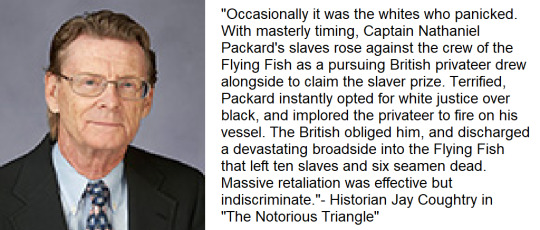
Page 158 of Coughtry's well-known 1981 book, Rhode Island and the African Slave Trade, 1700-1807 . He currently teaches at University of Nevada in Las Vegas.
Happy Black History Month! Slave trading runs in the Packard family as I've noted on this blog before. This article was a tough one to write because there are TWO Nathaniel Packards! While I tried to ask about this on /r/AskHistorians and received no reply, [1] I am operating with the educated assumption that the slave trading shown in the 1790s was from Nathaniel Packard, Jr., not his father, of the same name, Nathaniel Sr., as he will be called herein to distinguish from his son, who was the father of Samuel. I would further like to point out that Nathaniel Jr.'s mother was part of the Sterry family, and her first cousin, Cyprian, is the same one who Samuel worked with as a slave trader! [2] Not really a coincidence if you think about it.
Some may ask, how can you be so sure that this is the right Nathaniel? What if Nathaniel Sr. was the one involved in the trade of human beings? For one, I found out that Nathaniel Sr. was born in 1730, died in 1809 while his wife "Nabby" Abigail, was born in circa 1734, and she came to live with this Nathaniel in 1752, at age 18. [3] Her death in 1819, has not been confirmed. Nathaniel Sr. had a child with Abigail in 1769 (at age 39) named Elizabeth, in 1775 (at age 45) a child named Polly, and his child Nehemiah got married in 1777. [4] Furthermore, he probably wasn't engaged in slave trading in the 1790s, due to his age. After all, in 1790, Nathaniel Sr. would have been 61, and in 1799, he would have been 70. That seems a little old to be a captain of a ship, with anecdotal evidence suggesting that captains retired between 53 and 62. [5] I wish my evidence was stronger, but I decided to go with this article anyhow.
We do know that Nathaniel, my 2nd cousin eight times removed according to FamilySearch's "View my relationship" algorithm, was a captain, participating in the Revolutionary War, and reportedly having a similar career to his son, Samuel, owning land on North Main, Howard, and Try Streets in Providence. He was a master privateer during the revolution, captain of a sloop, called the America in 1776, and had a ship he was a captain of, the Sally, captured by the Royal Navy the same year. [6] That, and the story of the America, a ship appearing in thousands of results of the Naval Documents of the American Revolution Digital Edition, is for another day, whether I choose to write about it not. The age of Nathaniel, Jr., my third cousin seven times removed, is disputed. When he died in January 27, 1807, death notices recorded his age as 25, 35, or even 55. [7] At the time of his death, he owned a house on Providence's Main Street, with two houses and other buildings, and in 1801 he is noted as a sea captain, and as marrying a woman named Miss Margaret D. Paddleford in 1800. While he would have been born in 1782 if he was 25 years old in 1807, that means he would have been 15 years old in 1797, it is more likely he was 35 or 55, meaning that he would have been born in 1772 or 1752, although I am leaning more toward his birth in 1772, around the time his other siblings were born, than 1752.
Otherwise, what is known about his personal life is sketchy at best, even having a Find A Grave entry without a photograph of his gravestone. As such, writing about his story and its interconnection with the transatlantic slave trade is important, possibly even revealing more about him as a person. Whether he was a "man of wealth" like his brother, Samuel, or not, the fact remains that uncovering his connection to the slave trade is an important part of recognizing my collective past, the history of enslaved Black people, and much more. This article tries to counter what historians Erica Caple James and Malick W. Ghachem describe as "a still powerful tendency to marginalize or suppress the stories of black lives," with narratives about the past propagated as more marketable than alternatives that try to cut against the grain of “great man” history. [8]
Often Americans see themselves as exceptional people tied together by noble ideals, but this falls apart when history is taught fully and honestly "without omitting facts or telling outright lies" as Margaret Kimberley writes in Prejudential about the racial prejudice manifested by every single US president in history. For Nathaniel, the story starts in 1797. That year, he was the captain of four ships which crossed the Atlantic. The first was the Danish Harriet, which traveled to an unspecified region of Africa, from February to December, bringing with it 53 souls, most of which were men, and selling people in Havana, Cuba. Second was the Providence schooner, Abigail, owned by Ebenezer Macomber. Unlike the Harriet, which Nathaniel owned, this ship began its journey in Rhode Island. Similarly, it traveled to an unspecified region of Africa and sold 53 enslaved peoples, mostly men, in Havana. 11 souls perished during the voyage. [9]
The same year, and into 1798, he was captain, again, of the Harriet, now owned by J de Wint. It traveled once more to Havana, this time with 57 enslaved Black people on board. [10] A pattern emerges when combining data from slave voyages: from 1797 to 1800, Nathaniel, as captain or owner, transported 314 Africans in chains to Havana, Cuba, 85 who died during the Middle Passage, and 6+6 who may have died during the voyage or have a fate unknown, while 10-15 died in a slave revolt as described later in this article. Although after 1794 U.S. slave trade to Cuba was illegal, slave traders still made slave voyages to Havana, and "profited from their own Cuban plantations". This was amidst a societal change in Cuba, which changed from underdeveloped and unpopulated small settlements, ranches, and farms in 1763 to large tobacco and sugar plantations by 1838. This was accelerated by the import of hundreds of thousands of enslaved people during that time period, estimated at 400,000 by Hubert Aimes, benefiting Cuban planters, and a decree in 1789 which allowed foreigners and Spainards to sell as many enslaved people as they wanted in Cuba's ports. Land values rose as landowners, especially those involved in sugar production, gained more power and influence as the "sugar revolution" swept the island, with a 22.8% increase in enslaved people on the island from 1774 to 1827, and the planters depended on Spanish power more than ever to protect their investments. [11]
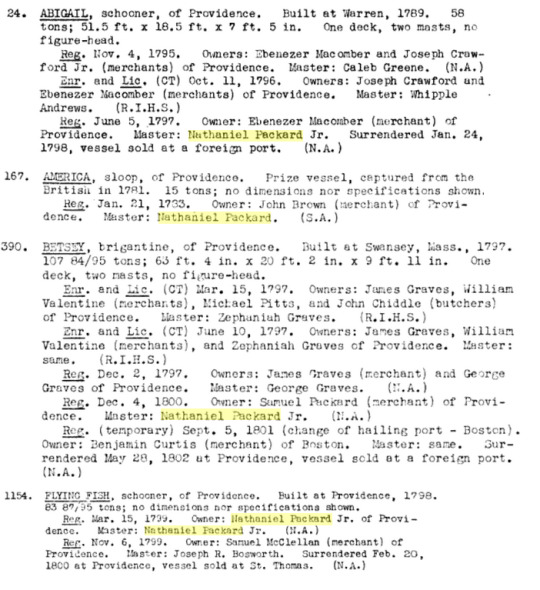
From pages 8, 60, 136, 360 of Ship Registers and Enrollments of Providence, Rhode Island, 1773-1939, Vol. 1, 1939, I believe the America was owned by his father.
The following year, he was captain, and owner, of the Flying Fish, a schooner from Providence. He co-owned the ship with Sam McClellan. This ship went to an unspecified part of Africa and sold 76 enslaved people in Havana, but they resisted with a "slave insurrection" noted. However, a voyage earlier that year with the same ship was more deadly, as almost half of enslaved people aboard died during the Middle Passage! [12] The ship had a tonnage of 85 tons, higher than some other ships.
It was then that Nathaniel would experience a revolt on the Flying Fish, which was transporting enslaved people. Ten of those on board would revolt, noted in the Newport Mercury. 10-15 enslaved people and 4-5 crewmen were killed in a failed revolt on this private armed vessel. While some sources said this was in 1800, the revolt was in late 1799, in actuality. [13] Coughtry, who I quoted at the beginning of this article, wrote:
Occasionally it was the whites who panicked. With masterly timing, Captain Nathaniel Packard's slaves rose against the crew of the Flying Fish as a pursuing British privateer drew alongside to claim the slaver prize. Terrified, Packard instantly opted for white justice over black, and implored the privateer to fire on his vessel. The British obliged him, and discharged a devastating broadside into the Flying Fish that left ten slaves and six seamen dead. Massive retaliation was effective but indiscriminate. On the few vessels that did experience slave revolts, captors and captives alike paid a high price for the latter's courage.
Nathaniel would be captain of the Betsey in 1800, Eliza in 1803, Minerva in 1794, Juno in 1805, and Dolphin in 1792. By 1800, he was married to Margaret Downs Paddleford, the daughter of well-off physician named Philip Paddleford and Margaret Downe. By the time they married, her mother had been dead or twenty years and Philip had married another woman, Elizabeth Macomber. The same year, friends of a 10-year-old Black male child, Peter Sharp, would testify against Nathaniel to the Providence Council. [14] In later years, in 1801 to 1802, he would be captain of the aforementioned slave ship, the Betsey. Only 94 of the enslaved people made it to the Americas and were sold in Havana, with 24 people perishing during the voyage across the Atlantic. [15] He did this while professing his religious ferment in his last will and testament, bequeathing money and personal property to his children and Margaret:

Will of Nathaniel in 1806, probated in 1807, noting his children and wife. [16]
Nathaniel was creating generational wealth, something which came in part from the trading of enslaved Black people. As Mary Elliott, curator on American slavery for The Smithsonian's National Museum of African American History and Culture noted in July 2019, some 12.5 million men, women and children of African descent were forced into the transatlantic slave trade, with the "sale of their bodies and the product of their labor [bringing]...the Atlantic world into being...[with] freedom was limited to maintain the enterprise of slavery and ensure power." She further said that Africans were forcibly migrated through the Middle Passage while the slave trade provided political power, wealth, and social standing for individuals, colonies, nation-states, and the church, while noting that enslaved black people "came from regions and ethnic groups throughout Africa." Although the U.S. international slave trade was made illegal in 1808, domestic slave trade increased, even as illegal slave trading continued internationally, with people such as my ancestor, Captain Samuel Packard, involved in it. What she next is significant to keep in mind:
Slavery affected everyone, from textile workers, bankers and ship builders in the North; to the elite planter class, working-class slave catchers and slave dealers in the South; to the yeoman farmers and poor white people who could not compete against free labor.
Furthermore, slavery itself was built and sustained by "black labor and black wombs", maintaining the economic system itself, with prosperity depending upon the "continuous flow of enslaved bodies", while a campaign of violence was waged against black people that "would rob them of an incalculable amount of wealth" following the end of Reconstruction in the 1870s. [17] Nathaniel, as well as his family, was part of this exploitation and it something that should be recognized, not hidden away or covered up as some people like to do with this history.
Notes
[1] On August 21, I asked "What age did sea captains, in the 18th century, retire?", adding in part "my common sense tells me he wouldn't be sailing a ship at that age and some scattered sources about this, when I did a quick search, did point to that." Unfortunately, a moderator removed the question for asking "basic facts," to which I wasn't happy (obviously), and was directed to another askhistorians thread. I posted a similar version of the question there, asking "Does anyone know what age did sea captains, in the 18th century (more specifically 1790s-early 1800s), retire?" And, just as I expected, I received NO reply. The lesson I took away from this is that you can't trust these forums to respond to you, and sometimes you just have to do the research yourself, with no help from anyone else, sad to say.
[2] Using this family relationship chart and explanatory post, I determined that Cyprian is the son of her uncle. This is because the brother of Abigail's father, Robert (1711-1789), was a man named Cyprian (1707-1772), who had a son named Cyprian (1752-1824), the one, and same, as the slave trader. So, that's the connection. Abigail and Nathaniel later had a daughter named Abigail, who married in 1784, and was named after her. In another interesting antecote, it appears that John Congdon, the father-in-law of 3rd cousin 7x removed, and the father of Abigail, the wife of Captain Samuel Packard, may have been a slave trader as well, as a Congdon is listed as captain of an unnamed slave trading vessel in 1762 and the Speedwell schooner from 1764 to 1765.
[3] Knowles, James D. Memoir of Roger Williams, the founder of the state of Rhode-Island (Boston: Lincoln, Edmands & Co., 1834), 432-433. Reprinted in "Notes on the Grave of Roger Williams," Apr. 20, 1907, Book Notes, Vol. 24, No. 8, p. 59. Relevant quote, reprinted from a letter in The American in 1819: "I am induced to lay before the public the following facts, communicated to me by the late Capt. Nathaniel Packard, of this town, about the year 1808...Captain Packard was son of Fearnot Packard, who lived in a small house, standing a little south of the house of Philip Allen, Esq. and about fifty feet south of the noted spring. In this house Captain Packard was born, in 1730, and died in 1809, being seventy-nine years old...Mrs. Nabby [Abigail] Packard, widow of Captain Packard, who is eighty-five years old, told me, this day, that her late husband had often mentioned the above facts to her; and his daughter, Miss Mary Packard, states, that her father often told her the same... Mrs. Nabby Packard, Nathaniel Packard's widow, told me this day, that she came to live where she now lives, when she was eighteen years old, which was sixty-seven years ago."
[4] "Rhode Island Town Births Index, 1639-1932", database, FamilySearch, 4 November 2020, Nathaniel Packard in entry for Elizabeth Sterry, 1857; "Rhode Island, Town Clerk, Vital and Town Records, 1630-1945," database with images, FamilySearch, 4 November 2020), Nathaniel Packard in entry for Elisabeth Sterry, 22 Nov 1857; citing Death, Providence, Providence, Rhode Island, United States, various city archives, Rhode Island; FHL microfilm 2,022,703; "Rhode Island, Town Clerk, Vital and Town Records, 1630-1945," database with images, FamilySearch, 4 November 2020, Nathanul Packard in entry for Polly Packard, 17 Dec 1858; citing Death, Providence, Providence, Rhode Island, United States, various city archives, Rhode Island; FHL microfilm 2,022,703; "Rhode Island Town Births Index, 1639-1932", database, FamilySearch, 4 November 2020), Nathaniel Packard in entry for Polly Packard, 1858; "Rhode Island Marriages, 1724-1916", database, FamilySearch, 22 January 2020), Nathaniel Packard in entry for Nehemiah Rhoads Packard, 1777.
[5] I'm referring to a 1931 New York Times story titled "37 YEARS AT SEA, CAPTAIN TO RETIRE; SHIP MASTER TO RETIRE" (noted a captain retiring at age 55), a U.S. Navy webpage saying you retire after age 62,and the life of Captain Edward Penniman (1831-1913) described by the National Park Service.
[6] White Jr., George Wylie. “A Rhode Islander Goes West to Indiana (1817-1818),” Rhode Island History, Vol I, No. 1, January 1942, p. 22; Lewisohn, Florence, The American Revolution's Second Front: Persons & Places Involved in the Danish West Indies & Some Other West Indian Islands (University of Texas, 1976), p. 12; "Captain Nathaniel Packard's Account Against the Rhode Island Sloop America, September 30, 1776," American Theatre from September 1, 1776, to October 31, 1776, Vol. 6, via Naval Documents of the American Revolution Digital Edition; "Owners of the Rhode Island Sloop America to Captain Nathaniel Packard, August 21, 1776," American Theatre from September 1, 1776, to October 31, 1776, Vol. 6, via Naval Documents of the American Revolution Digital Edition; "Lists of Prizes Condemned in the Vice Admiralty Court of Antigua, January 14, 1778," American Theatre from January 1, 1778 to March 31, 1778, Vol. 11, via Naval Documents of the American Revolution Digital Edition; "Governor Nicholas Cooke and John Jenckes to Captain Nathaniel Packard, February 3, 1776," American Theatre from January 1, 1776, to February 18, 1776, Vol. 3, via Naval Documents of the American Revolution Digital Edition; "Prizes Taken by British Ships in the Windward Islands, May 1, 1776," American Theatre from April 18, 1776, to May 8, 1776, Vol. 4, via Naval Documents of the American Revolution Digital Edition; "Journal of H.M. Sloop Pomona, Captain William Young, March 11, 1776," American Theatre from April 18, 1776, to May 8, 1776, Vol. 4, via Naval Documents of the American Revolution Digital Edition; "Potential Suspects," Gaspee Virtual Archives, accessed September 26, 2021. He was also said, according to the 1774 RI Colonial Census, to be living in Providence with his family, that year, and have tracts of Land in Providence as early as 1762. As a note on his FamilySearch profile proposes, he may have been involved in the Gaspee Affair in 1772.
[7] According to a note on his FamilySearch profile, a death notice was published in Providence Phoenix (Providence, R.I.), 31 Jan 1807, p. 3, col. 2, has an unclear date of either he was age 25, 35, or 55, with a reprint in the Columbian Centinel (Boston, Mass.), 4 Feb 1807, p. 2, giving his age as 25, the Salem Register (Salem, Mass.), 5 Feb 1807, p. 3, col. 3, giving his age as 35, the Independent Chronicle (Boston, Mass.), 5 Feb 1807, p. 3, giving his age as 25, and Newburyport Herald (Newburyport, Mass.), 6 Feb 1807, p. 3, col. 2, giving his age as 25. See the note for further sources of information beyond this sentence, mainly abstracting from probate records. He was also living in Providence in 1800, according to "United States Census, 1800," database with images, FamilySearch, accessed 26 September 2021, Nathanies Packard Jr, Providence, Providence, Rhode Island, United States; citing p. 211, NARA microfilm publication M32, (Washington D.C.: National Archives and Records Administration, n.d.), roll 45; FHL microfilm 218,680, and his marriage is noted here: "Massachusetts Marriages, 1695-1910, 1921-1924", database, FamilySearch, 28 July 2021, Nathaniel Packard, 1800.
[8] Erica Caple James and Malick W. Ghachem, "Black Histories Matter," Perspectives of History, Sept. 1, 2015, accessed September 26, 2021.
[9] Trans-Atlantic Slave Trade - Database, "Voyage 35224, Harriet (1797)", with entry also in Peoples of the Historical Slave Trade database and another entry here; Trans-Atlantic Slave Trade - Database, "Voyage 36677, Abigail (1797)", with entry also in Peoples of the Historical Slave Trade database.
[10] Trans-Atlantic Slave Trade - Database, "Voyage 35225, Harriet (1798)", with entry also in Peoples of the Historical Slave Trade database.
[11] Franklin Knight, "The Transformation of Cuban Agriculture, 1763-1838" in Caribbean Slave Society and Economy: A Student Reader (ed. Hilary Beckles and Verene Shepherd, New York: The New Press, 1991), 69, 72, 74-78.
[12] Trans-Atlantic Slave Trade - Database, "Voyage 36727, Flying Fish (1799)", with entry also in Peoples of the Historical Slave Trade database; "Voyage 36726, Flying Fish (1799)", with entry also in Peoples of the Historical Slave Trade database and here.
[13] Eric Robert Taylor, If We Must Die: Shipboard Insurrections in the Era of the Atlantic Slave Trade, Vol. 38, 2009, p. 209; Naval Documents Related to the Quasi-war Between the United States and France: From Dec. 1800 to Dec. 1801, United States. Office of Naval Records and Library, 1935, p 397.
[14] U.S., Newspaper Extractions from the Northeast, 1704-1930 for Margaret D Paddleford, Massachusetts, Columbian Centinel, Marriage, Nabor-Ryonson, :Newspapers and Periodicals. American Antiquarian Society, Worcester, Massachusetts; Massachusetts, U.S., Compiled Birth, Marriage, and Death Records, 1700-1850 for Margaret Downs Padelford, Taunton; Massachusetts, U.S., Town Marriage Records, 1620-1850, Vital Records of Taunton, Margaret Downs of T. and Nathaniel Packard of Providence, Feb. 12, 1800, in T. Intention not recorded; Massachusetts, U.S., Wills and Probate Records, 1635-1991 for Philip Padelford, Bristol, Probate Records, Padeford, James - Paine, Sarah, pages 144 and 145; via page 11 of Descendants of Jonathan Padelford, 1628-1858 chart, where it almost looks like Margaret Brown; Children Bound to Labor: The Pauper Apprentice System in Early America, 2011, p. 43.
[15] Trans-Atlantic Slave Trade - Database, "Voyage 36753, Betsey (1802)", with entry also in Peoples of the Historical Slave Trade database.
[16] Will of Nathaniel Packard, 1807, Rhode Island, U.S., Wills and Probate Records, 1582-1932 for Nathaniel Packard, Providence, Wills and Index, Vol 10-11 1805-1815, Rhode Island, District and Probate Courts.
[17] Of note is what one writer, Nancy Isenberg, argued: that Americans believe in social mobility, but have a "long list of slurs and of terms" for people, and noted that "the discussion of class throughout our history has forced on the centrality of land and land ownership, as well as what I call breeds, or breeding", concepts which come from the British, and notes that another English idea is that "the wealth and the strength of the nation are based on the size of its population" and goes onto say that the English were focused on bloodlines, lineage, and pedigree, even more on inheritance, while saying that class has a specific geography with class-zoned neighborhoods, and stated that convincing people that poor whites are enemies of black Americans is a way to divide people, concluding that "not only are we not a post-racial society, we are certainly not a post-class society."
Note: This was originally posted on Feb. 6, 2023 on the main Packed with Packards WordPress blog (it can also be found on the Wayback Machine here). My research is still ongoing, so some conclusions in this piece may change in the future.
© 2023 Burkely Hermann. All rights reserved.
#packards#slave trade#slavery#enslaved people#black history matters#black lives matter#rhode island#providence#18th century#19th century#havana#cuba#spain#slave revolt#slave rebellion#middle passage#slaveowners#reconstruction#nancy isenberg
0 notes
Note
Who would you say are some exceptional female historians who've written about the US presidency?
There are scores of great female Presidential historians, so any quick list that I make will invariably leave deserving historians out and I apologize ahead of time. Before I begin the list, I want to give special recognition to one of the very best:
Doris Kearns Goodwin's bibliography measures up against the books of any and all Presidential historians. Her first book, Lyndon Johnson and the American Dream: The Most Revealing Portrait of a President and Presidential Power Ever Written (BOOK | KINDLE | AUDIO) was originally published in 1976 but, in my opinion, remains one of the greatest Presidential biographies EVER written.
Others, in no particular order:
•Margaret Leech
•Amy S. Greenberg
•Elizabeth Drew
•Brenda Wineapple
•Candice Millard
•Amity Shlaes
•Jan Jarboe Russell
•Annette Gordon-Reed
•Alexis Coe
•Lady Bird Johnson (her diaries are priceless first-person accounts of her husband's Presidency and life in the White House)
•Joanne B. Freeman
•Lynne Cheney (surprisingly to most people, the wife of former Vice President Dick Cheney is a respected historian who has written excellent books on James Madison and the early Presidents from Virginia)
•Fawn Brodie
•Aida D. Donald
•Kate Andersen Brower
•Elizabeth Brown Pryor
•Peggy Noonan
•Nancy Gibbs
•Nancy Isenberg
•Susan Swain
•Margaret Truman
•Edna Greene Medford
#History#Presidents#Presidency#Presidential History#Presidential Historians#Writers#Women in History#Female Presidential Historians#Doris Kearns Goodwin
21 notes
·
View notes
Text
fundamental amrev experience is being assigned the legend of sleepy hollow as required reading in your highschool english class and freaking out A. because it's by washington irving, who was discussed extensively in that one nancy isenberg essay about aaron burr's sexuality, and B. because it Won't Stop Talking About John André, who, of course, is john andré
#everyone raise a glass to john andré#reading tlsh while watching turn was actually such an experience#it's so fascinating? how much of an impact he and his death had on american culture#especially because yk. he was british. and turned benedict arnold who the average american does Not like#something soooo fascinating about arnold being demonized and andré being glorified#which i'm sure was in no small part to be arnold being entirely unpleasant to be around and andré being like#everyone's favorite guy ever#choose your fighter:#ben “i can recall no instance where my affections were so fully absorbed in any man” tallmadge#marquis “i made the mistake of allowing myself to acquire a true affection for him” de lafayette#alexander *writes a 3000 word letter to laurens about how much he loved andré* hamilton#and more#and yeah just.#the fascination that tlsh makes clear people had with him#is SO interesting to me sorry idk. that's america's favorite brit right there#also. washington irving never beating the gay allegations idk#the achilles and patroclus mention was crazy#john andré#john andre#benjamin tallmadge#ben tallmadge#marquis de lafayette#alexander hamilton#i probably should have written all that in the actual post and not in the tags but. Whatever
17 notes
·
View notes
Text
Oh so Burr spoke to a gynecologist for his daughter. Is that what you're telling me Nancy Isenberg.
45 notes
·
View notes
Text
booklist for my anthropology class about race in america
Caste: the origins of our discontents, by Isabel Wilkerson
White Bound: Nationalists, Antiracists, and the shared meanings of race, by Matthew Hughey
The Fire Next Time, by James Baldwin
There, There, by Tommy Orange
Tours That Bind: diaspora, pilgramage, & Israeli birthright tourism, by Shaul Kelner
Americanah, by Chimamanda Ngozi Adiche
Interior Chinatown, by Charles Yu
more honorary mentions that didn't make the official cut in order to not swamp us in work (but i want to check out later)
How Jews Became White Folks and What That Says About Race In America, by Karen Brodkin
Making Monsters: the uncanny power of dehumanization, by David Livingstone Smith
The Souls of Black Folk, by W. E. B. Du Bois
In the Eye of the Wild, by Nastassja Martin
Their Eyes Were Watching God, by Zora Neale Hurston
Life Beside Itself, by Lisa Stevenson
White Trash, by Nancy Isenberg
How Real is Race? a sourcebook on race, culture, and biology, by C. C. Mukhopadhyay, R. Henze & Y. T. Moses
44 notes
·
View notes
Text
august 2022
articles
we're not going back to the time before roe- we're going somewhere worse
fashion has abandoned human taste
a close reading of the best opening paragraph of all time
in defense of garlic in a jar
decolonization: we aren’t going to save you
why we need to start seeing the classical world in color
how academics, egyptologists, and even melania trump benefit from colonialist cosplay
a lecture on the diversity of greek & roman sculpture
classics & the alt-right
decolonization is not a metaphor
empty the museum, decolonize the curriculum, open theory
how the good guy with a gun became a deadly american fantasy
books
white trash by nancy isenberg (still reading)
the club by takis wurger (2/5)
different class by joanne harris (1/5)
ninth house by leigh bardugo (1.5/5)
circe by madeline miller (2/5)
no excuses by gloria feldt (dnf)
dismantled by jennifer mcmahon (1.5/5)
house of leaves by mark z. danielewski (4/5)
the book & the brotherhood by iris murdoch (dnf, may return to it eventually)
the castle of otranto by horace walpole (still reading)
video & audio
how tiktok’s algorithm figures out your darkest secrets
subjectivity in art
the rise of workplace surveillance (will make you want to die)
73 notes
·
View notes
Note
Im not sure if it was you but you posted a quote about the English poor laws that linked them ti the frontier? If that was you what was the book
Josephine ensign’s book on skid row talked about this a lot but there was also Trash by Nancy isenberg and this short book on policy by Dorothy James
18 notes
·
View notes
Note
girl help i can’t find that nancy isenberg quote which goes “ these were our founders, imperfect men in an imperfect nation” and i’m pretty sure it was on ur blog or renees HELP

enjoy ❤️
27 notes
·
View notes
Text
Idk where my ‘if the strikes have gotten you interested in labor history’ reading list went so here it is again.
Midnight in Vehicle City by Edward McClelland
Reuther by Frank Cormier
There is Power in a Union by Philip Dray
The Devil is Here in These Hills by James Green
Which Side Are You On by Thomas Geoghegen
Only One Thing Can Save Us by Thomas Geoghegen
Strike! by Jeremy Brecher
Blood Passion by Scott Martelle
From Blackjacks to Briefcases by Robert Michael Smith
The Blue Eagle At Work by Charles J Morris
Working in the Shadows by Gabriel Thompson
Other books for lesser known bits of American history:
American Midnight by Alex Hochschild [plenty of labor history]
The Color of Law by Richard Rothstein
Days of Rage by Bryan Burrough
There’s Something Happening Here by David Cunningham
White Trash by Nancy Isenberg
The Plutonium Files by Eileen Welsome
Honorable mention:
On a Clear Day You Can See General Motors by Patrick J Wright, a biography of John DeLorean's time at General Motors.
2 notes
·
View notes
Note
I've started a class on US history ( particularly around the colonization ) and it's fascinating! Do you have any period you would recommend to look more into?
You picked an interesting time to ask me about US history, through absolutely no fault of your own! (I haven't studied US history since high school, and my AP US History teacher has spent the last 20 or so years in jail for, uh... having relationships with little boys that were 100% NOT OKAY. And I recently found out he's out of prison and has been attempting to track down some of the boys involved [who are all now in their 30s and 40s]. I only know because one is one of my old roommates, and he was dating my best friend, and... well. I saw his name on the list and was just like "okay, this has to be a parole violation of some sort. Also, dude, what the actual fuck?! Several of the boys you hurt later committed suicide. One was found dead by his little sister and her best friend. They were nine. Nine years old. You are a fucking monster. Jesus christ.")
Aside from that... I'm not super well-versed in US history as a whole, but I have enjoyed some books dealing with it, so okay if I mention those? I particularly loved A People's History of the United States (Howard Zinn) and Lies My Teacher Told Me (James Loewen), both of which were seminal in presenting less "whitewashed" versions of US history. I've also enjoyed in recent years The Warmth of Other Suns by Isabel Wilkerson (about the disapora of Black Americans from the Southeast into the Midwest during the 20th century), The American West and Bury My Heart at Wounded Knee, both by Dee Brown (classics of the expansion of settlers into the West in the 19th century, the "cowboy" years), and White Trash by Nancy Isenberg (looking at class in America). Other good, popular writers of US history: David McCullough, Doris Kearns Goodwin, Ron Chernow, Candice Millard. There's some awesome fiction that tackles US history in interesting ways - my favorites are A Tree Grows in Brooklyn (Betty Smith), The Little Friend (Donna Tartt), Forever (Pete Hamill), The Jungle (Upton Sinclair), and basically anything by Steinbeck.
I find the great migration periods particularly interesting, especially the Asian arrivals in the West in the late 19th and early 20th centuries. Early Hollywood is fascinating. There's a wonderful book about it called Silent Stars by Jeanine Basinger. The US also has some honest really good classics in True Crime, especially Truman Capote's In Cold Blood and Norman Mailer's The Executioner's Song. (Truman Capote is also interesting in that he was a very good friend of Harper Lee, who wrote To Kill a Mockingbird.) There were some writers in the mid-20th century who took travel writing and turned it on its head: try Travels with Charley (Steinbeck again!), On the Road (Jack Kerouac - not my personal style, but I understand why it's an American classic!), and Roughing It (Mark Twain). (Honestly, all of Twain's stuff is great, and fucking hilarious. Twain and Wodehouse - in England - had no business being as brilliantly hilarious as they were.)
Also, a weirder rec?
Stephen King's 11/22/63.
Just trust me. And yes, it's that Stephen King.
Again: trust me.
(Other fictional creepiness built around or dealing with North American history [I say North American because I'm including Canada and Mexico]: Alma Katsu's The Hunger, Dan Simmons' The Terror, Silvia Moreno-Garcia's Mexican Gothic [and I just got her Velvet was the Night, but haven't read it yet!], Toni Morrison's Beloved, basically anything by Cormac McCarthy. [Content warning, some of these are a little stomach-churning to get through. Reader beware!] I've also recently been recommended S. Craig Zahler's Westerns, but haven't read them yet, so be warned there that he's the guy who wrote Bone Tomahawk! If you know... you know. If you don't... not recommended viewing while eating. 🤷♀️ And speaking of Westerns, Larry McMurtry's Lonesome Dove is absolutely wonderful. And not stomach-churning!)
Hope that helps! If there are any specific periods that catch your interest, I can dig into recommendations for further reading/watching. US history isn't always my personal cup of tea, but my mother's been writing books and articles about it for 30 years, so I can always ask for recs! 😁
6 notes
·
View notes
Video
youtube
Nancy Isenberg - White Trash: The 400-Year Untold History of Class in Am...
1 note
·
View note
Text
VICE PRESIDENTS/VICE PRESIDENCY
•Crapshoot: Rolling the Dice on the Vice Presidency by Jules Witcover (BOOK)
•Veeps: Profiles in Insignificance by Bill Kelter and Wayne Shellabarger (BOOK)
•The American Vice Presidency: From Irrelevance to Power by Jules Witcover (BOOK | KINDLE)
•First in Line: Presidents, Vice Presidents, and the Pursuit of Power by Kate Andersen Brower (BOOK | KINDLE | AUDIO)
•Very Strange Bedfellows: The Short and Unhappy Marriage of Richard Nixon and Spiro Agnew by Jules Witcover (BOOK | KINDLE)
•Fallen Founder: The Life of Aaron Burr by Nancy Isenberg (BOOK | KINDLE | AUDIO)
•Angler: The Cheney Vice Presidency by Barton Gellman (BOOK | KINDLE | AUDIO)
•Accidental Presidents: Eight Men Who Changed America by Jared Cohen (BOOK | KINDLE | AUDIO)
•Breckinridge: Statesman, Soldier, Symbol by William C. Davis (BOOK | KINDLE)
•Calhoun: American Heretic by Robert Elder (BOOK | KINDLE | AUDIO)
•Bag Man: The Wild Crimes, Audacious Cover-Up & Spectacular Downfall of a Brazen Crook in the White House by Rachel Maddow and Michael Yarvitz (BOOK | KINDLE)
OTHER PRESIDENTS | CONFEDERATE PRESIDENT JEFFERSON DAVIS
•Jefferson Davis, American by William J. Cooper Jr. (BOOK | KINDLE)
•Jefferson Davis: The Man and His Hour by William C. Davis (BOOK | KINDLE | AUDIO)
•Embattled Rebel: Jefferson Davis as Commander in Chief by James M. McPherson (BOOK | KINDLE | AUDIO)
•An Honorable Defeat: The Last Days of the Confederate Government by William C. Davis (BOOK | AUDIO)
•Bloody Crimes: The Chase for Jefferson Davis and the Death Pageant for Lincoln's Corpse by James L. Swanson (BOOK | KINDLE | AUDIO)
OTHER PRESIDENTS | TEXAS PRESIDENT SAM HOUSTON
•The Raven: A Biography of Sam Houston by Marquis James (BOOK)
•Sword of San Jacinto: A Life of Sam Houston by Marshall De Bruhl (BOOK)
•Sam Houston: American Giant by M.K. Wisehart (BOOK)
•Exiled: The Last Days of Sam Houston by Ron Rozelle (BOOK | KINDLE)
#Books#Book Suggestions#Book Recommendations#Vice Presidents#Vice Presidency#Jefferson Davis#Confederate President#Sam Houston#President of Texas#President Davis#President Houston
12 notes
·
View notes
Text
A Few Critical Books I’ve Read
Gender and Sexuality Studies
Woman and the New Race by Margaret Sanger
This book was written in the 1920s in support of birth control. An intriguing look at the history of women’s rights and the reality of Black exclusion.
The Stonewall Reader by the New York Public Library
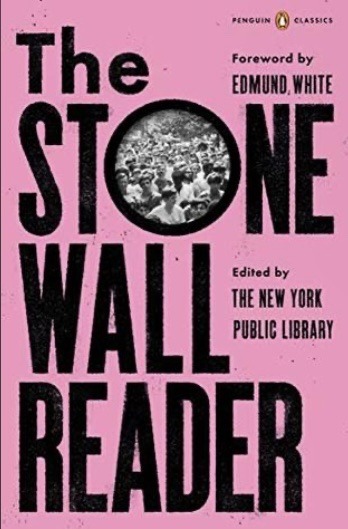
Essays, articles, and interviews detailing the importance of the Stonewall Uprising to queer States’ history.
Trans Liberation : Beyond Pink or Blue by Leslie Feinberg
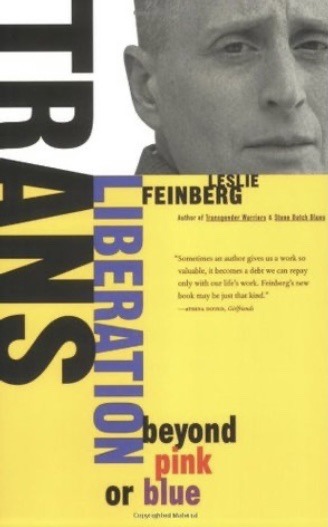
Collection of Feinberg’s speeches on the importance of Trans Liberation.
Sexuality and the Unnatural in Colonial Latin America by Zeb Tortorici
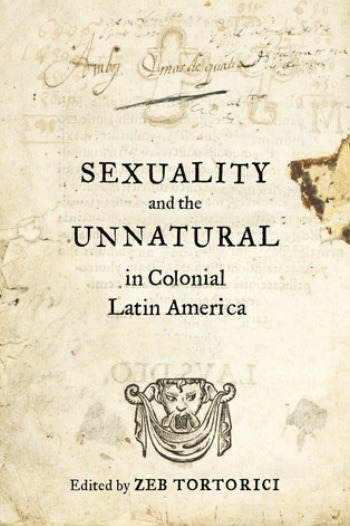
Exploration of sex and laws in Colonial Latin America under the Inquisition.
Exploring Masculinities : Identity, Inequality, Continuity and Change by C J Pascoe and Tristan Bridges
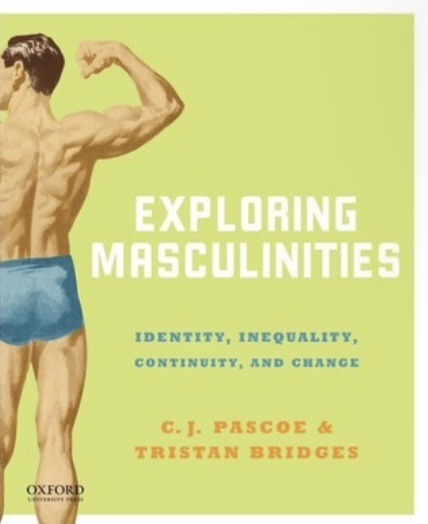
A history of masculinities in the States and how they affect our present.
Race Studies
Four Hundred Souls : A Community History of African America 1619-2019 by Ibram X Kendi and Keisha N Blain
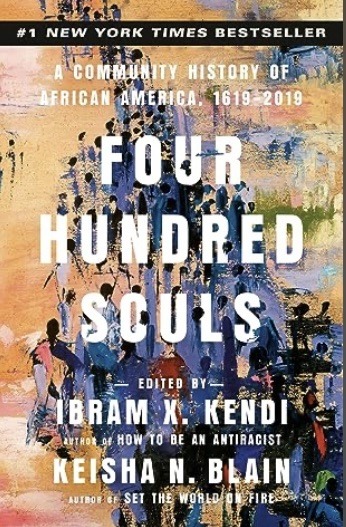
Collection of poems and essays detailing the history of African America.
White Trash : the 400-Year Untold History of Class in America by Nancy Isenberg
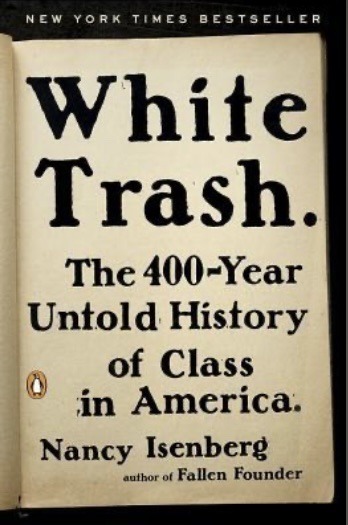
Best read in conjunction with White Fragility. History of class in the States with notes on how it’s affect changed depending on gender and race.
Historicizing Race by Marius Turda
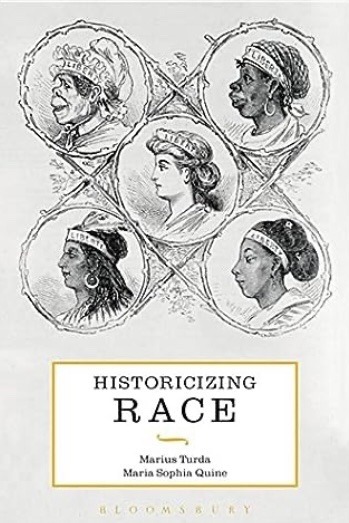
A history of how race has affected and been affected by every function of society, history, and “science”.
White Fragility : Why It’s So Hard for White People to Talk About Racism by Robin D’Angelo
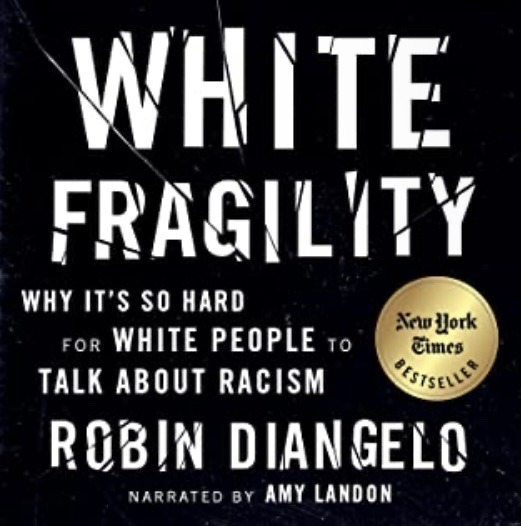
Discusses why race is a taboo subject in White America.
So You Want to Talk About Race by Ijeoma Oluo
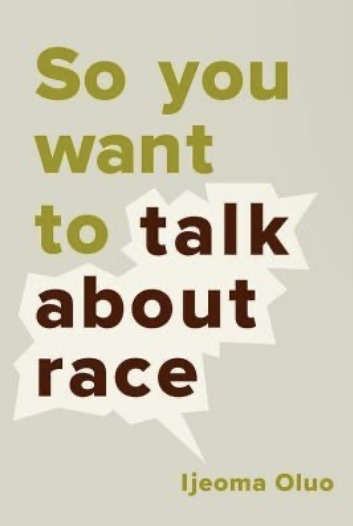
A personal experience with racism and the common questions and arguments that appear in this discussion.
Relationship Studies
Attached : The New Science of Adult Attachment and How It Can Help You Find and Keep Love by Amir Levine and Rachel Heller

Reviews the four attachment styles and how they affect our interpersonal relationships.
0 notes
Text
Working Class/Labor History
Reading
How Class Cultures Work- how working & middle class subcultures differ, and why, some history as well as implications for the current era.
Activist Class Cultures- effects/role of class cultures in social justice movements
A People's History of the United States by Howard Zinn- read Zinn's classic online! There is also a young people's version available. Please buy a physical or e-book copy from an independent bookstore if possible!
Listening/Watching
Working Class History Podcast, they also have a book!
The Land That Never Has Been Yet from Scene on Radio- amazing series about the history of American democracy- how democratic are we, and what is democracy's future?
White Trash: the 400 Year History of Class in America- Nancy Isenberg on Youtube (lecture summarizing her book)
Libraries, University Programs, Journals/Conferences
Working Class Studies
Texas Center for Working Class Studies
1 note
·
View note